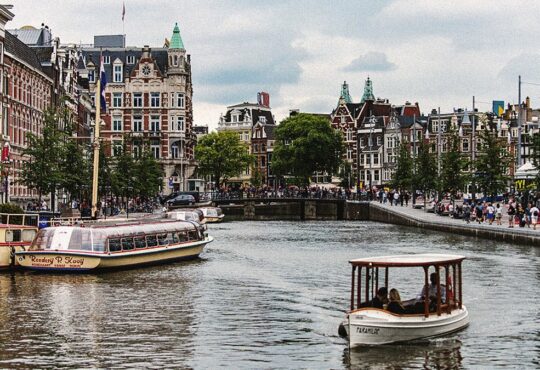2K
Driving in Turkey can be a nightmare, especially in Istanbul. However, it also gives you the opportunity to explore amazing places, or to get to work on time, depending on where you are.
This article will explain everything you need to know about driving in Turkey and all the necessary steps for you to get your driving license in Turkey if you need it. The process of getting your driving license in Turkey could take around 3 months, give or take.
Turkey is a huge, diverse and amazingly beautiful country with so much land to explore. if you are new to Turkey and don’t speak Turkish, you might find it difficult to navigate your way around the country using the public transport systems. Therefore, by driving yourself, you have the freedom to explore the entire nation with ease and won’t need to depend on anyone.
Still, there are a few things to consider before getting into the driving seat.
I have divided this section into 2 sections, driving in Istanbul and driving in the rest of Turkey.
Before you decide to rent a car and drive through Istanbul you need to think about where you are going. For most of the tourist sites and famous attractions, the best, easiest and cheapest way to get there is by using one of the many public transport options. See our Istanbul transport guide here.
The buses and trains can be daunting but there are loads of maps, guides and mobile apps to make using public transport much easier.
Regarding driving in Istanbul, it is generally best avoided unless you have no other choice. The traffic is just unimaginable. Also, the roads are not easy to follow, even if you are using a GPS guide.
Finally, it is not cheap. The high cost of fuel and the toll system can really cost you a packet, especially if you are not familiar with the roads.
Another big problem is parking. There is never anywhere to park. Lots of places just don’t have parking. If they do, be prepared to pay an exorbitant hourly fee to park your car. In Istanbul, you really don’t need any of this trouble.
I have been living in Istanbul for around 2 years now. And one thing I hate doing is driving anywhere in this city. It is one of the largest cities in the world. To make things worse, it is spread out across 2 continents and several separate pieces of land. This makes driving that much harder. And the traffic, well, I don’t need any of that.
Travel Tip: make sure that you book accommodation near fixed transport lines like trains, tramways or the Metrobus line.
That being said, I think that, in general, the rest of Turkey is well suited to travel by car and easy to naviagte for any driver. Outside of Istanbul, I have never really had any issues at all driving.
The roads are of decent quality and almost all road signs are written in both English and Turkish. If you have traveled and driven in different countries or if you have a good driver’s intuition, like me, you won’t have any issues on Turkish roads.
Car rental is pretty much the same everywhere. The cars are the same and you will likely find the same international franchsies offering cars for rent.
As a rule, I always stick to international car rental companies, even though they are a bit more expensive sometimes, for a few reasons:
- They usually speak English. When you rent a car you need to make sure you understand all the details.
- They have a clear policy, generally. They will give you documents where the rental conditions are clear. alternatively, you will be able to see their conditions in English online.
- You probably won’t be discriminated against for being a foreigner. I hate to say this because I love Turkey but unfortunately, some Turkish people are reluctant to rent things to foreigners fearing that they can’t be trusted. Hopefully, international companies will be professional enough. I have not been denied car rental by any international rental company so far.
- They don’t add on unreasonable or ‘made up on the spot’ conditions. I was once told that I have to rent a car for a minimum of 3 days by a local rental company, whose name I can’t remember. I had never heard this in my life before.
- They are less likely to try their tricks or scams on you.
I once fell for this trick in Antalya. I booked a car online and the company said that they offer ‘meet and greet’. I thought that this meant that they would be waiting to welcome me as soon as I arrive, right..wrong!
When I arrived I saw no one anywhere and I was shocked to notice that this company didn’t even have an office in the terminal.
Basically, meet and greet means that this company has an office offsite and they come and deliver the car to you. I eventually got my car but was quite pissed that it was not made clear to me from the beginning. These companies are so sneaky.
Overall, I have had a pleasurable car rental experience in Turkey. I have rented on many occasions and didn’t have any issues. The companies that I have used so far are Avis, Sixt, Budget, Hertz. Those are the few that I can remember.
Some companies, like Garenta Moov, offer an hourly car rental service. This service is helpful because they deliver the car to you and you can leave the car anywhere in the city once you are done (in Istanbul but I’m not sure if it’s available in other cities).
I have never used this service but I know of people who have and it might work for you too.
A tourist or foreign resident in Turkey is allowed to use a foreign driving license or international license for up to 6 months from the date of their arrival in Turkey. Thereafter, a Turkish license is needed to continue driving.
Some say that it is possible and easy to convert your foreign driving license into a Turkish driving license. To begin with, this idea sounds weird. Furthermore, all the information I found online was unclear and perhaps old.
More importantly, I found this information to be contrary to the information I received ‘on the ground’ from Turkish authorities. So, in my opinion, converting your driving license from your home country in Turkey is a dead end.
You will need to have the following in order to apply for a Turkish driving license.
- Valid residence permit
- 2 ID photos
- A translated and notarized school or university certificate
- A health report including your eye-test and blood group
- A criminal record document (check here how to get it)
- You need to have registered your address with The Nüfus Müdürlüğü (Population Directorate)
Once you have obtained these documents you will need to find a driving school and register for a driving course or surucu kursu. There’s loads of information available online, mostly in Turkish, about what the driving course entails. However, not all of this information will be true for you. I will explain this as we go along.
I signed up with a driving school that was recommended by a friend. I generally find personal recommendations to be the most reliable in Turkey. The driving instructor spoke Arabic fluently and was a competent English speaker. He was also extremely patient and helpful throughout the entire process. The process can take about 2-3 months for you to get your license.
Once you have found your driving school you need to register for the driving course. I was told that the official price of the driving course is 1700TL, but the school gave me a small discount. This course is supposed to include all training needed for the theoretical test and the practical (ground-work) test.
The following fees are not included in the course fee:
- Cost of the theory test: 120TL (to be paid when booking)
- Cost of the practical test: 120TL (to be paid when booking)
- Cost of the driving license fee: 1000TL (This fee is paid via bank deposit after passing the practical test)
All in all, you are looking at around 3000TL. If you add the cost of the initial docs listed above, you need to add a few hundred more.
I read somewhere that the driving school is supposed to provide 30 hours of theory training, 12 hours of practical training and a few hours of first aid training.
To be honest, I didn’t receive any theory or first aid training. And, I didn’t need it to pass the test. I just followed the guidelines and instructions from my driving instructor and I passed. That’s why it’s so important to find a school and instructor that can speak your language, and give you the important information.
Your instructor will book the theory test on your behalf at a location and date that you choose. I would suggest studying the theory book for at least 1 month. The book is quite thick and contains a mother-load of information.
You have the option of taking the theory test in a foreign language. I know that English and Arabic are available, and a few other languages too. I chose English which was no problem for me. However, the language used in the book was rather poorly translated. This made learning a bit confusing. However, there is a website that has great exam prep questions. These questions are the same questions that are asked in the exam.
The driving school will give you a receipt for the exam. You will need this along with your Residence permit ID card to enter the exam venue. You will not be permitted to take anything else into the venue. There are lockers available at the entrance where you can lock your personal belongings.
The theory test consists of 50 multiple-choice questions. In order to pass the test you will need to get at least 35 questions correct.
The test is done on a computer. For the English test, you will need to open up an English translation window for each question. You need to read the question, decide on the answer and then go back to the main window and select your answer in Turkish. This takes up a bit more time and requires a bit more concentration. It also increases the possibility of errors. Also, you have only 1 hour to complete the test so you need to be well prepared.
Once you finish the test, you will be asked to sign that you attended and then receive your results online by following the link posted outside the test venue. I am generally a slow learner. I studied for 6 weeks, and combined studying the book and completing 100s of the questions on the website. I passed with 86%. I felt that I was well prepared and had little trouble on the test day.
Your school will now book your practical test at the nearest available date. Depending on where you are, this could take about 1 month. During this time you will need to sharpen your driving skills. I found the driving maneuvers rather easy and straightforward.
The test includes 5 tasks and takes around 15 minutes. If you complete them correctly you will pass the test.
- Parallel parking
- L Park: you need to reverse around a corner.
- Reverse: this involves reversing in a straight line for 30 meters.
- Emergency stop
- Take-off on an incline
These are all the required tasks. They are quite straightforward. No surprises. Your instructor will take you through the paces and explain all the necessary requirements to pass.
I have been driving in Turkey and abroad for years so I only needed a single lesson to master all the moves. There is also a short car inspection that needs to be done in Turkish. I just memorized the Turkish names of the engine parts like engine, oil cap and so on. It was good enough.
The school sent me a location. I had to make my way there and wait for the instructor and inspector to come with the driving school’s car. You use the same car that you practice in. The instructor from the school arrived on time with 2 inspectors. All four of us were in the car for the test. I thought it was over-kill. In South Africa it’s just you and 1 inspector.
I started the car inspection by opening the bonnet and calling out the different parts in Turkish. I then popped the boot and named the parts with the spare-wheel. The inspectors didn’t seem to be interested. I guess it was just a formality. They knew that I can’t speak much Turkish.
The three other people were constantly talking during the test. The instructor and one inspector would get out of the car during each manoeuvre while one inspector remained with me throughout the test. There were several other people doing driving tests or practicing. There was a queue of cars waiting at certain parts of the circuit.
Also, these tasks are done on public roads that are used by other drivers. This may be intimidating for new drivers. However, I couldn’t be bothered.
I made a minor error during the emergency stop. I accidentally switched off the car.
There was some chatter among the inspectors in the car but when I finished and got out they all said everything was okay. I found this a bit unclear. None of them spoke English well and they didn’t give me any documentation so I was a little skeptical. When I called my guy at the school he said all is well.
A week later I was called to the school to get my certificate, which looked really fancy, like a university degree. I also got back all the other documents that were initially submitted: photo, criminal record, translation of degree and health report.
Before getting your license there is one more outstanding payment. You need to go to one of the listed government banks (I made my deposit at Ziraat Bank) and pay the Driving license fee of about 1000TL, depending on the license class.
Next, you need to make an online appointment at the Population Directorate office, known as Nüfus Müdürlüğü. Take all the above-mentioned documents along with your driving license certificate and the bank slip of the driving license fee to your appointment at Nüfus Müdürlüğü.
These were the steps that I followed to get my license. The process was long, I know. Also, bearing in mind that the minimum wage in Turkey is less than 3000TL, it’s kind of pricey. There’s no way the average working-class individual could afford to get a license in Turkey, which is quite sad.
That being said, I found the process to be smooth and reasonable. In fact, I found the test to be much easier than the test I did as a teenager in South Africa. I think that getting a driving license in Turkey will be a breeze for an experienced driver and very doable for a non-Turkish speaking newbie.





